When it comes to pests, many of us feel alarmed and concerned. The idea of creepy crawlies invading our homes and properties can be unsettling, and some pests like carpenter ants, termites, rodents, and wildlife can damage our homes and property. One of the worries that often arises is the fear of pests causing harm, or even posing a serious threat to our lives. Let’s answer this common question: “Are there pests that can kill me?” Then, let’s look at some pests that are present here in the Pacific Northwest and the facts and myths surrounding this topic.
Mosquitoes and disease transmission
There are over 200 different species of mosquitoes throughout the U.S., and there are approximately 12 disease-vectoring mosquitoes in the U.S. and an even smaller group exists in the Pacific Northwest. Common mosquito-borne diseases here include West Nile virus and Western Equine Encephalitis. Since 2018 there have been no reports of Zika transmission by mosquitoes in the US and no reported cases at all in the U.S. since 2019. According to the Centers for Disease Control and Prevention (CDC), mosquito-borne diseases can cause mild, short-term illness or severe or long-term illness in rare cases. Sometimes, severe cases of mosquito-borne diseases can cause death.
With this in mind, it’s essential for Portland-area homeowners to practice mosquito prevention including minimizing standing water and mosquito breeding grounds, using repellents, and ensuring proper screening of doors and windows to keep mosquitoes from getting inside your home.
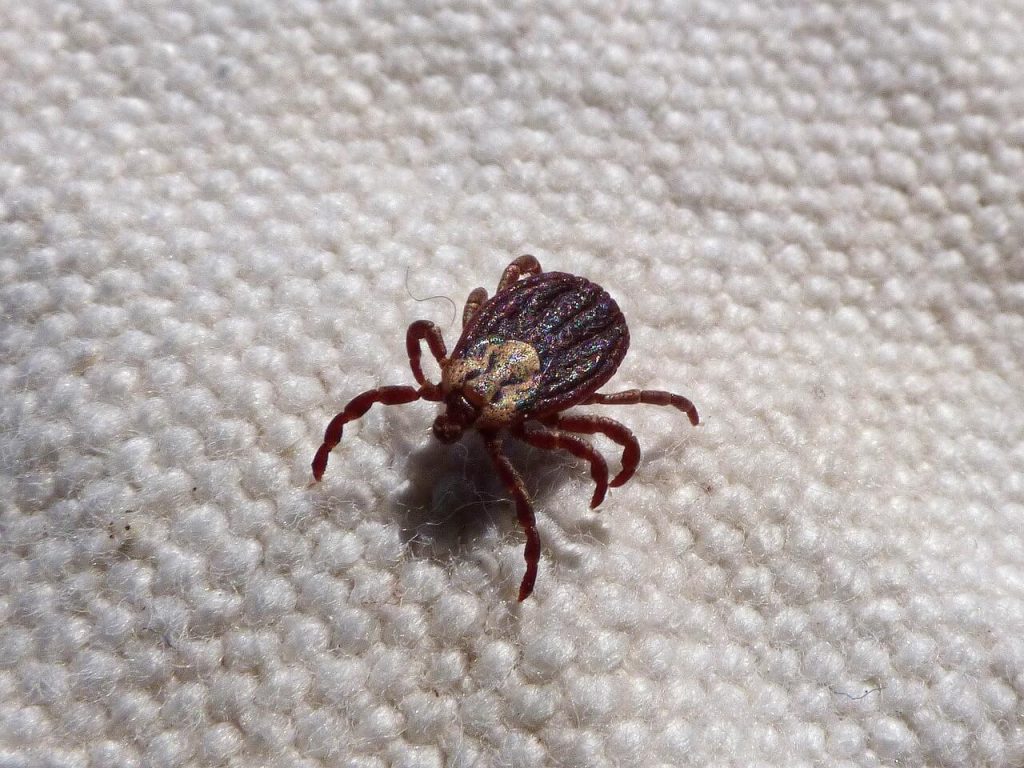
Ticks and tick-borne diseases
Ticks can carry pathogens that pass diseases to humans including anaplasmosis, Lyme disease, Rocky Mountain spotted fever, tick-borne encephalitis (TBE), and tickborne relapsing fever (TBRF). Most tick-borne illnesses can be treated effectively, especially when caught early. However, the long-term side effects can be harmful when left untreated. There are four types of ticks that we need to worry about here in the Pacific Northwest:
Here in the Pacific Northwest, western black-legged ticks are our primary tick species, and they can spread Lyme disease. We also have western dog ticks and Rocky Mountain wood ticks, but it is not confirmed whether or not they carry tick-borne illnesses. Outdoor activities such as cycling, fishing, and hiking are popular here in the Pacific Northwest. While enjoying time outside, taking precautionary measures such as wearing protective clothing, using tick repellents, and conducting thorough tick checks after outdoor activities can help reduce the risk of tick-borne diseases. Also, avoid possible tick habitats during peak tick season, usually late March through mid-October.
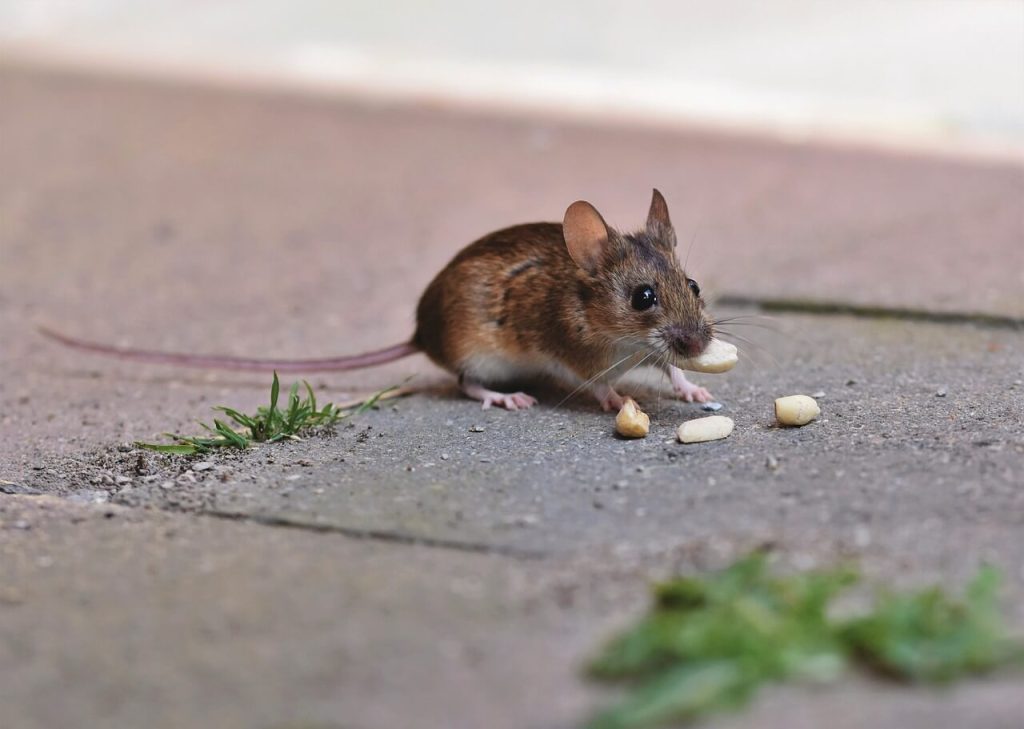
Rodents and disease transmission
In addition to destroying property and being aesthetically displeasing, rodents, such as rats and mice, can transmit diseases through their droppings, urine, and bites. Diseases like hantavirus, leptospirosis, and salmonellosis can be contracted from rodent infestations. The most commonly encountered types of rodents found in the Pacific Northwest are:
Of these common rodents, deer mice are the only vectors of hantavirus in our area. Effective rodent control measures, including eliminating their food sources along with breeding and nesting places, sealing entry points, and implementing proper sanitation practices, are essential to mitigate the health risks associated with rodents. If you notice common signs of rats and mice in your home such as droppings, gnaw marks, and scratching noises, a pest control company can help you get rid of rodents safely and keep them from infesting your home again.
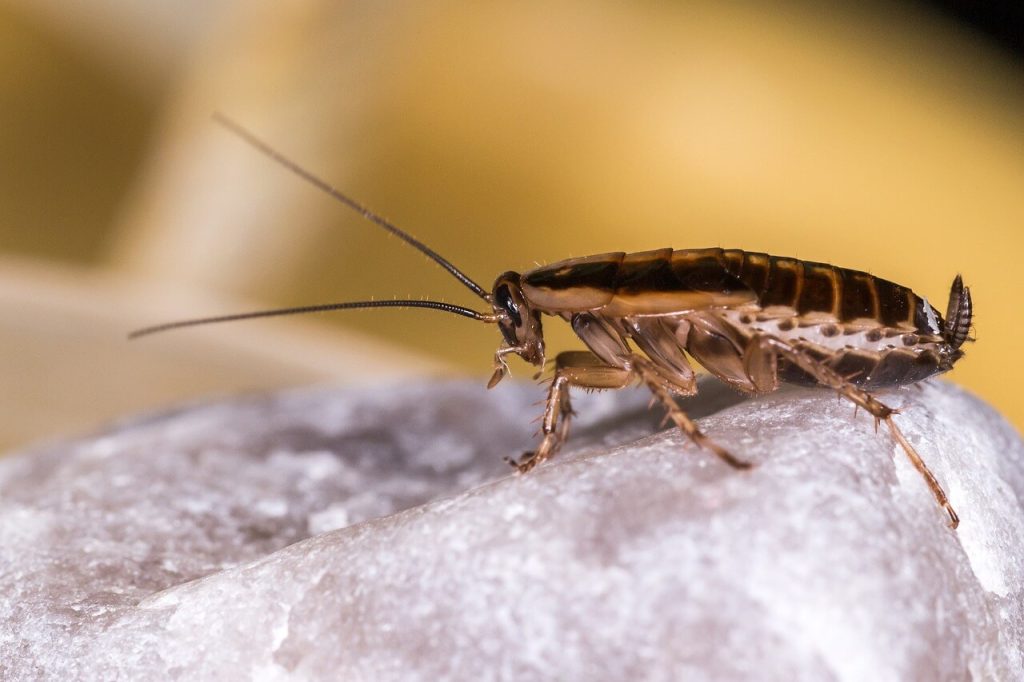
Cockroaches and allergens
Not only are cockroaches creepy, but they can trigger allergies and exacerbate asthma symptoms, particularly in sensitive individuals. Their droppings, shed skins, and saliva contain allergens that can lead to respiratory issues. While cockroaches don’t usually bite people, but they travel through dirty areas like sewers and drains. While they’re not directly linked to disease outbreaks at this time the Centers for Disease Control and Prevention (CDC) says they have been known to carry salmonella typhimurium, Entamoeba histolytica (parasites), and the poliomyelitis virus.
The most common type of cockroach found in the Pacific Northwest is the German cockroach. Learn more about this pest by reading our “Guide to Oregon Cockroaches.” Maintaining cleanliness, minimizing moisture, and implementing cockroach control strategies can help reduce the allergenic impact of these pests. Because they are hard to get rid of and breed quickly, a pest control company can help you get rid of a cockroach infestation quickly and easily.
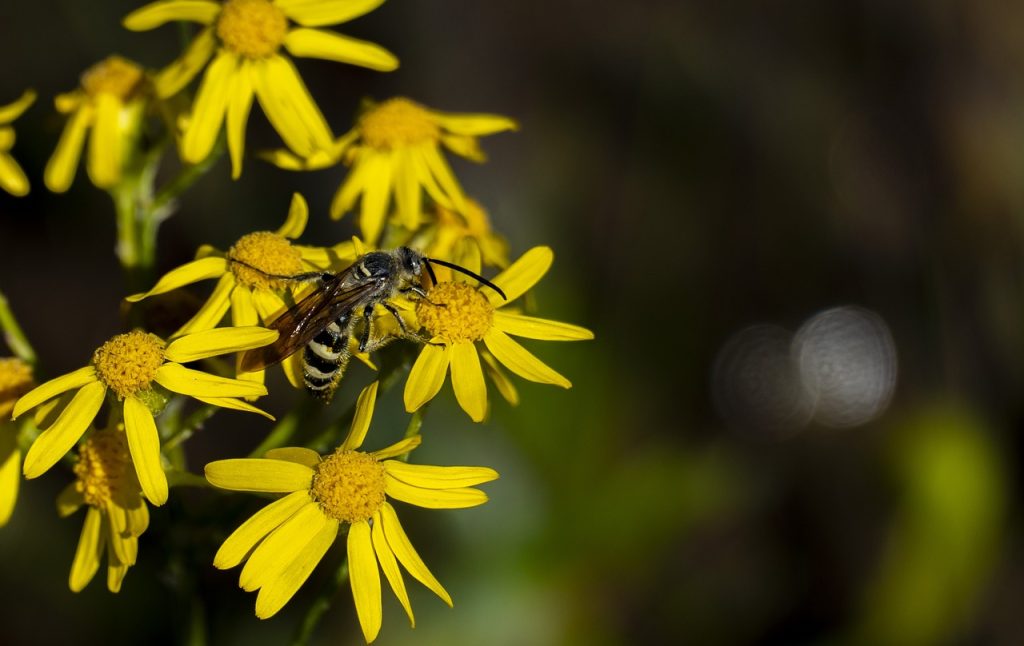
Stinging insects and severe allergic reactions
Stinging insects (bees, wasps, and hornets) can be both harmful and helpful to people. For most people, an insect sting results in redness, swelling, and itching, but for some (approximately five to seven percent of Americans), stings may be life-threatening. According to the American Academy of Allergy, Asthma & Immunology (AAAA&I), these people are allergic to insect stings, and their immune systems overreact to the venom. A severe allergic reaction is known as anaphylaxis. It is considered a medical emergency and may be fatal. The CDC cites a statistical 62 average deaths per year.
Symptoms of anaphylaxis may include two or more of the following:
- Diarrhea or nausea
- Difficulty breathing
- Dizziness
- Itching and hives
- Rapid fall in blood pressure (in severe cases)
- Shock and loss of consciousness (in severe cases)
- Stomach cramps
- Swelling in the throat or tongue
It’s important to be aware of these symptoms, and if you experience any of these after an insect sting, get emergency medical treatment. Here in the Pacific Northwest, our moist springs provide the perfect environment for nest formation of this region’s most aggressive pests. (Learn more about these pests by reading our “Guide to Stinging Insects.”)
There may be some cases where you only see a few stinging insects around your property and cannot locate a nest. However, nests will grow over time, and stinging insects will attack if they feel provoked. A local pest control company will inspect your property, locate the nest, and safely remove it. Contact us at the first sign of bees, wasps, or yellow jackets on your property.
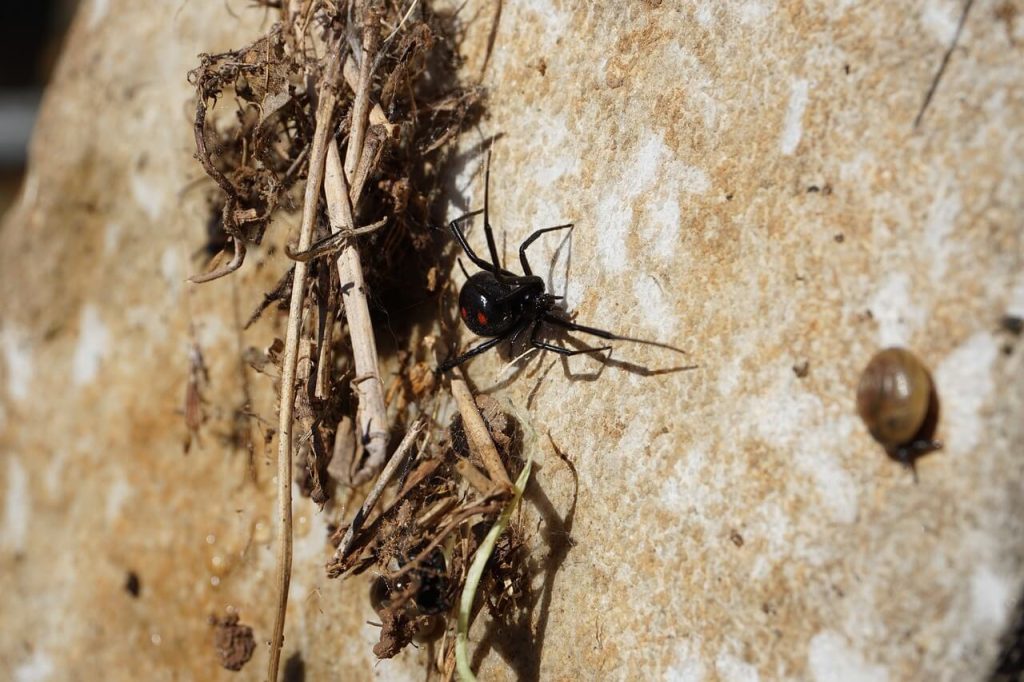
Spiders and venomous species
Conversely to stinging insects, spiders account for far fewer medically significant events. While most spiders are harmless, some venomous species, such as the black widow or brown recluse, can cause severe health issues. Luckily, the brown recluse spider is not found in Oregon. Black widow spider bites can cause serious swelling, pain, muscle contractions, heart racing, difficulty breathing, nausea, sweat, and chills. But can it kill you? Technically it is possible, but death from a black widow bite is extremely rare – although the effects of black widow venom can be very uncomfortable.
However, bites from these spiders are rare. Black widows are no more aggressive than most other spiders. Bites usually only happen because of pure bad luck, like sticking your hand into an area with a black widow hiding in it. If you suspect a dangerous spider bite, seek medical attention immediately.
Spiders play a beneficial role in controlling other insect populations and can be managed through targeted pest control methods. A professional pest control company has the tools, understanding, and experience to effectively take care of your spider problem.
Professional pest control in Portland, Vancouver, Olympia, and Kelso
While there are pests that can pose health risks, it’s important to approach the topic with accurate information and effective pest control measures. You can significantly reduce the potential risks associated with pests by implementing preventive actions, seeking professional assistance when necessary, and maintaining a clean living environment.
Interstate Pest Management is here to provide expert guidance, eco-friendly pest control solutions, and peace of mind when it comes to integrated pest management (IPM). And remember, knowledge, prevention, and timely intervention are key to ensuring your safety and well-being. If you are in need of a professional exterminator who puts the safety of you, your family, and your pets first, get in touch with us here or call us at (503) 832-4997. We proudly serve Kelso and Longview, Olympia, Portland, Vancouver, and all the surrounding areas.